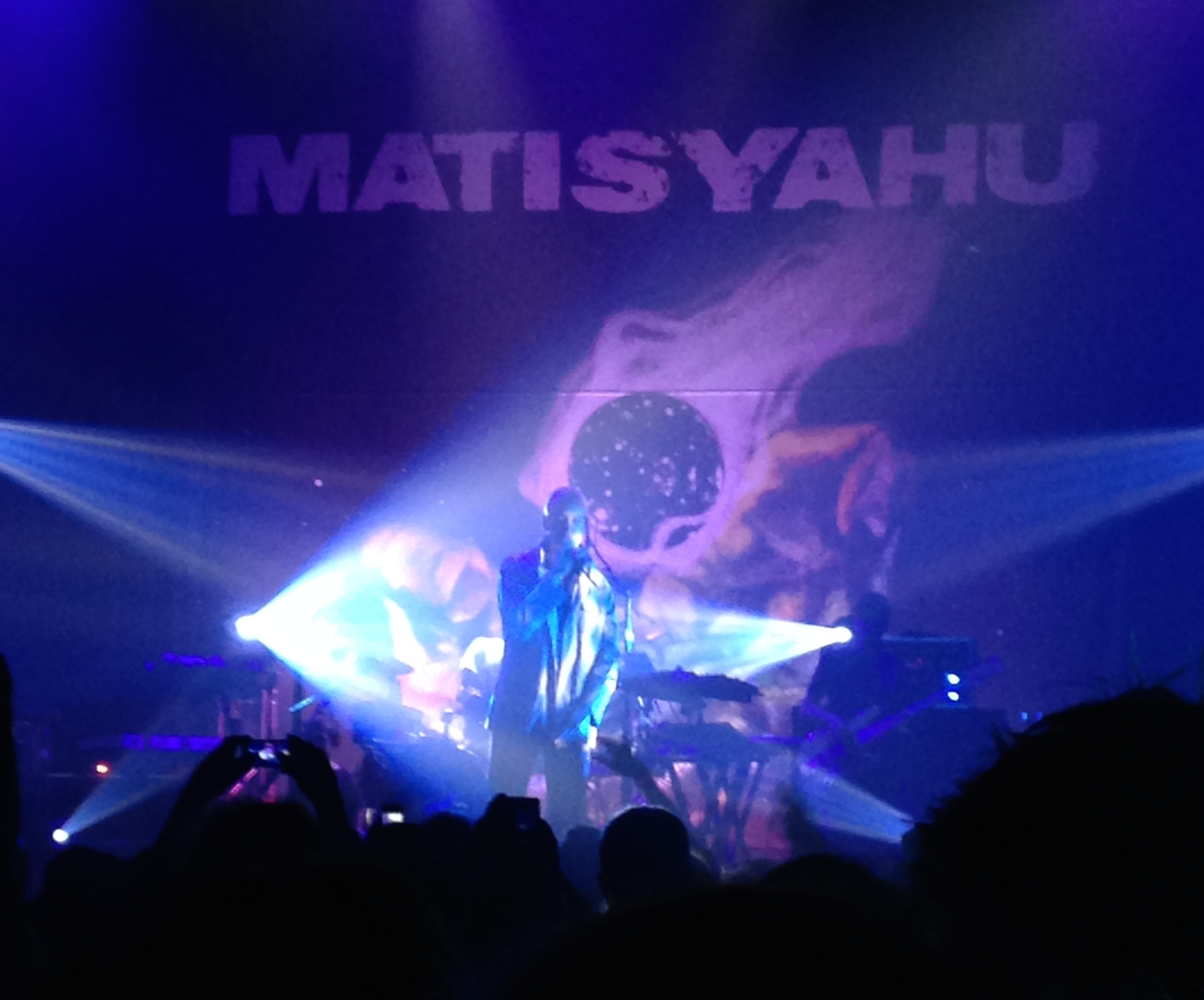Matisyahu, also known as Matthew Miller, is a Jewish reggae artist who has reached international acclaim — but maybe you already knew that. Maybe you also knew that Matisyahu began his musical career as an Orthodox Jew of Chabad-Lubavitch affiliation, complete with the visual signifiers of long beard, curling payot (sidelocks), and dangling tzitzit (fringes on the corners of a shirt).
Perhaps you also knew that Hillel at UCLA organized buses to bring students to a Matisyahu concert last Thursday, complete with a VIP meet and greet afterward (or maybe you even attended). Or maybe you were woefully unaware that all this fun could be had for $21.
In either case, here is a short video clip of what you missed out on:
At the beginning of his career, Matisyahu’s songs contained overt religious themes, such as his Top 40 hit, “King without a Crown” which includes the refrain “I want Moshiach (the Messiah) now” — a reflection of his Chabad-Lubavitcher beliefs and emphasis on expediting the coming of the Jewish Messiah. Brought up in a Reconstructionist household, Matisyahu rediscovered his Jewish roots while attending the Alexander Muss High School in Israel when he was seventeen years old.
In a 2009 interview with the Public Broadcasting Service, Matisyahu said that he pursued drugs from the ages of 16 to 22 in order to achieve the “transcendent, almost spiritual experience of being high.”
Matisyahu told the reporter, “I got to a certain point I think where I felt very stuck and very, like, unable to get to that place, you know, to get back to that experience, and I knew that it had to be done without any crutch or any substances and drugs or anything like that. I really felt that the way to do it was to really delve into my spiritual tradition.”
After discovering Rabbi Shlomo Carlebach (an Orthodox rabbi and musician who inspired alienated Jewish youth in the 60s and 70s with his universal message), Matisyahu began to become involved with the Chabad-Lubavitcher movement and to incorporate Jewish themes into his lyrics. In 2001, Matisyahu moved to Crown Heights, New York, enrolled in a yeshiva, and began to seriously study Judaism.
More than a decade later, Matisyahu is now clean-shaven, divorced, and decidedly not Orthodox. When the Jewish Telegraph Agency asked about the change, Matisyahu said, “When I was in my early 20s, I became interested in Jewish identity and history. I went to Israel and had a strong feeling about being Jewish. I started to think about how to incorporate my spiritual search into reggae music. And I decided to make the leap to express myself as a Jew. I started to wear a yarmulke, grew a beard and changed my clothes. It was very much like the blending of the old mystical tradition and spirituality with who I am in America as a 21-year-old musician. Then I decided that I would go the next level with it all and that I would take on the ideology of Orthodox Judaism, even though I didn’t necessarily understand it logically. I figured that I was going to submit myself to it. And I accepted it. It became a part of my worldview. At the same time, I was traveling a lot, meeting different hasidim, and I really got a good understanding of what it means to be Jewish. But at some point I felt locked in to that vision of the world. I needed to go back to my choices and make decisions about my life. I still believe there is a lot of truth in Orthodox Judaism, but not the whole truth. Each person has his truth that he has to discover. You don’t necessarily have to mold yourself to another idea of who you are.”
Despite Matisyahu’s sincerity during each step of his spiritual journey — explaining that he was drawn in by the force of Orthodox Judaism and still loves and respects it although he no longer practices it — many fans are outraged at the change. Matisyahu reports that his Twitter account is always filled with comments such as “Where’s the beard?” or “Grow back the beard” from his fans.
“Separate from religion,” Matisyahu acknowledged to the Jewish Chronicle, “there is the image issue. Some artists are bound to an image: Bob Marley has dreadlocks, Matisyahu has a beard. But that’s a reminder that the whole thing is not about style. It’s about music.”
Nowadays, Matisyahu lives “about 100 days a year” in Los Angeles and spends the rest of his time in New York, sharing custody of his three children.
Matisyahu commented that his children “were much less shocked than anyone else. They were just, like, ‘Whatever – it’s my dad.’ It shows you the purity of children, how they can see straight through all the image.”
As Matisyahu told JTA, through all the ups and downs of his career and personal journey, he is thankful for the fans who have stood by him: “When you are in a relationship with an artist, if his music is a part of your life, you have to choose whether or not to follow him through his transformation and evolution. You know, it’s like the story of the golden calf. When Moses comes down from the mountain, the first thing he does is burn it and it goes back to its original form. Sometimes a calf comes to us like an idol and we become stuck in an image. But to go back to the truth, we need to get rid of the image and get back to the base core. That’s kind of what I did.”

